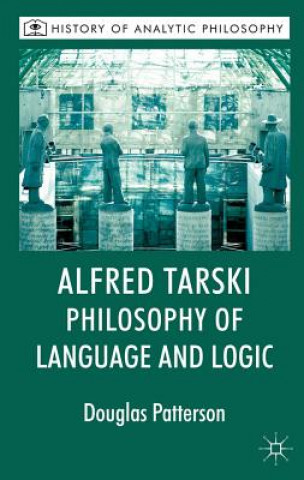
Doručení
Nákupní rádce





Nehodí se? Vůbec nevadí! U nás můžete do 30 dní vrátit
 Dárkový poukaz
V libovolné hodnotě
Dárkový poukaz
V libovolné hodnotě
S dárkovým poukazem nešlápnete vedle. Obdarovaný si za dárkový poukaz může vybrat cokoliv z naší nabídky.
Alfred Tarski: Philosophy of Language and Logic
 Angličtina
Angličtina
 154 b
154 b
30 dní na vrácení zboží
Mohlo by vás také zajímat


Alfred Tarski is known as the founder of the rigorous study of semantics, but little is known about the views he held at the time other than that at one point he calls his position 'Intuitionistic Formalism'. Alfred Tarski: Philosophy of Language and Logic sets out a detailed account of these views, in particular by looking to the work of Tarski's mentors Stanislaw Lesniewski and Tadeusz Kotarbinski. Both subscribed to an account of language on which meaning was a matter of the expression of a thought through symbols governed by conventional rules. In particular Lesniewski held that they best way to express thought was in the form of a rigorously crafted deductive theory. Tarski accepted these views and made it his project to express metatheoretic thought -thought about formal systems themselves - to intuitionistic formalist standards. He began with simple theories of the relation of logical consequence, conceived of in terms of a fixed set of primitively valid rules. Tarski next turned his attention to the semantic concepts that figured in the work of Skolem and Godel, as well a group known as the American Postulate Theorists. The result of his study here was his now famous method for the definition of truth by recursion on satisfaction. In light of the reading of Tarski developed in the early chapters of the book the major topics concerning Tarski's semantics are covered: the significance of the T-sentences, the meaning and purpose of the famous Convention T, and questions about whether or not Tarski held that each language is covered by its own peculiar concept of truth. This work done, within a few years Tarski realized that the semantics he had developed could actually replace the intuitionistic formalist conception of meaning. His famous work on logical consequence is read in this light and the shift in his thinking is discussed in detail.
Informace o knize
 Angličtina
Angličtina
Kategorie




 Jak nakupovat
Jak nakupovat



















